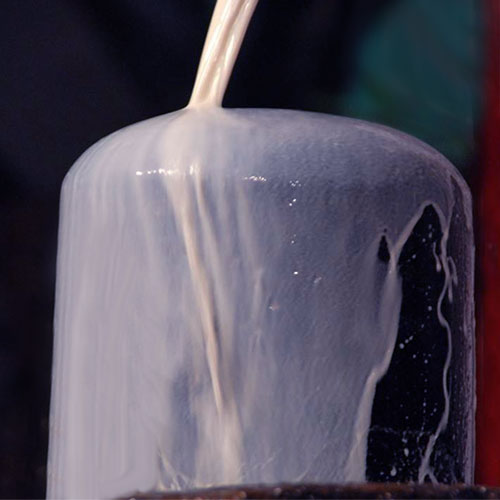Devotees who love to worship and pay tribute to Lord Shiva don't mind to even walk many miles to see the holy facade of Shiva. There are countless numbers of divine spots which are pulling spiritual Shiva devotees in abundance year after year. The prayer to the almighty is not at all completed without fasting. According to Shiva Purana, it is believed that if a devotee performs Shiva Vrata with utmost spiritual zeal, then he/she is blessed with the grace of Lord Shiva. Sincerity and devotion of each and every devotee during fasting are noteworthy. A number of devotees concentrates on dieting with fruits and milk where as many don't even drink a drop of water throughout the day and night of the Shivaratri Festival.
Two natural forces are said to be controlled by Mahashivaratri Vrat according to the Hindu Mythology. These forces, such as, Rajas Guna (the quality of passionate activity) and Tamas Guna (the quality of inertia), actually afflict a man. When a devotee actually is devoted in the feet of Shiva with sincerity and passion, all his/her motion is controlled and evils which control human beings are forbidden as well. Annoyance, desire and jealousy are disregarded and subdued. The devotee gets the power to conquer the evils of Tamas Guna at the same time as well. Pilgrims who perform a round of prayer and worship Shiva once every three hours are said to have performed an apt Maha Shivaratri Vrata.
Devotees, who fast during Shivaratri, believe from the core of their hearts that performing a fast is extremely propitious. They even rate it equal or more than performing a powerful Ashwamedha Yagna. Devotees, tainted with sins, utter the name of Shiva several times during the time of worship. It is considered an extremely holy act by the pilgrims. According to the popular belief, the worship of Shiva and Maha Shivaratri Vrata eradicate all sins. Hence, that finicky devotee gets a valuable opportunity to reach the abode of Shiva and live there happily ever after. It is also believed that these fastidious pilgrims and Shiva worshippers are enlightened with divinity and are liberated from the birth and death cycle.
Devotees who fast during the auspicious occasion have to get rid of their bodily adulterations and impurities by taking a bath with boiled water. The black sesame seeds are added in the water in order to fulfill that particular wish. After taking the holy bath, devotees in numbers flock to the nearest consecrated temple wearing new clothes to watch the face of the Shiva and perform plenty of conventional rituals. The Shiva lingam of the temple takes bath with milk and honey. A devotee utters the hymn while bathing the lingam- "O Lord! I will bathe Thee with water, milk, etc. Do Thou kindly bathe me with the milk of wisdom? Do Thou kindly wash me of all my sins, so that the fire of worldliness which is scorching me may be put out once for all, so that I may be one with Thee-the One alone without a second."
Devotees after enjoying the holy bath apply Haldi- Kumkum on Shiva Lingam and decorate his trunk with a beautiful garland of white and pink lotus flowers. Aarthi takes place and devotional songs are sung to praise Lord Shiva. Various Hindu rituals are also performed in order to get the blessings of Shiva. Shiva blesses his devotees while they pay tribute to him ringing bells and lighting incense sticks.

Maha Shivaratri Fasting continues all throughout the day and night. In most of the other festivities, however, a feast takes place after worshipping the deity. The chanted mantra 'Om Namah Sivaya' fill the air around. Devotional hymns and songs are also played at the spot. Devotees offer fruits to Shiva. Devotees, who assemble at the spot, listen to the recital of different legends and mythological tales, associated with the deity and Maha Shivaratri.
Prasadam of Shiva is distributed on the very next day after devotees break their overnight fast.